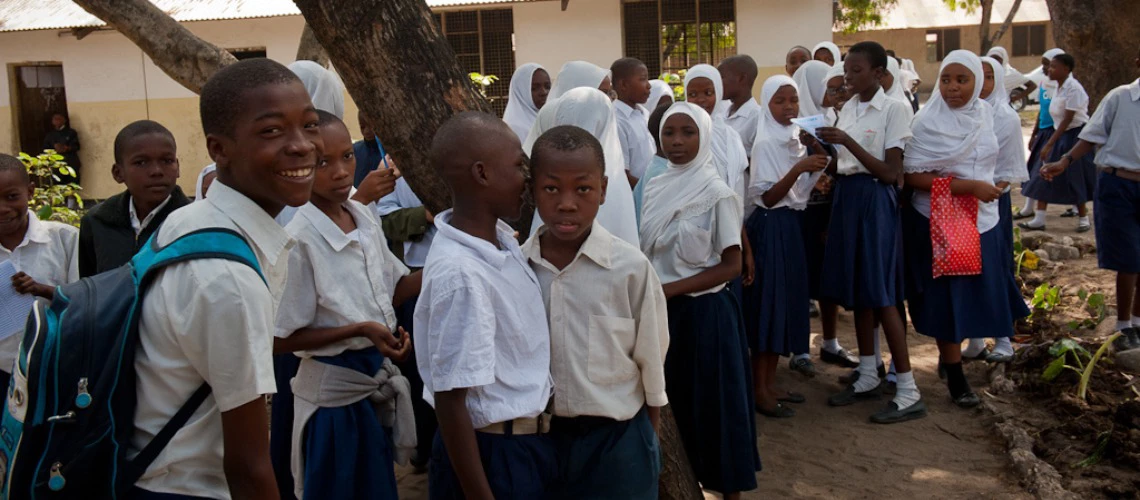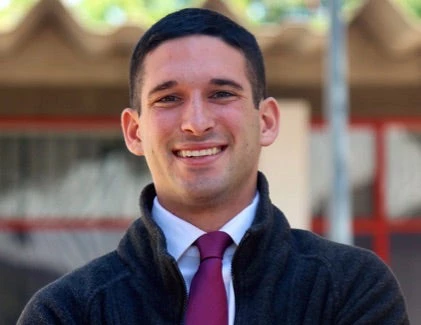 Increasing the number of compulsory years of schooling can make a substantial impact on the learning crisis and the climate emergency. Copyright: Arne Hoel/World Bank
Increasing the number of compulsory years of schooling can make a substantial impact on the learning crisis and the climate emergency. Copyright: Arne Hoel/World Bank
It is often said that people with more education are more likely than others to understand the complexities of climate science and to take actions in response to the climate emergency. We are now able to prove that proposition. Our recent research has shown that an additional year of education substantially increases people’s pro-climate beliefs, behaviors, and policy preferences.
This is good news, but increasing educational attainment has a further crucial benefit – it can help to solve the global learning crisis that was exacerbated by the COVID-19 pandemic school closures. And in a virtuous cycle, reversing these learning losses may then have a further knock-on effect on increasing support for climate solutions.
Educational attainment and the climate crisis
Changes to the earth’s climate caused by human activity have reached crisis proportions and now pose an existential risk to the planet. Addressing this urgent challenge will require individuals to support the policies and actions needed to mitigate the damage. However, many people around the globe remain skeptical about climate change and oppose the policies required to tackle it.
Research has shown that the more educated a person is, the more likely they are to understand the extent of the climate emergency and the need to take action. However, it has been challenging to establish direct causality between education and pro-climate beliefs and actions. People might choose to pursue more education while already holding more pro-climate beliefs. Also, reverse causality might also be in play if individuals choose to pursue more education simply to enable them to adapt to climate-related economic changes.
To tackle this causality issue, we analyzed: (i) data on laws in 20 European countries making schooling compulsory for all children up to a specified age; (ii) data from the biannual European Social Survey (ESS), which, since 2016, has included questions on personal attitudes to climate issues and outcomes; and (iii) data on voting for green parties in Europe since 2002.
Our overall finding was that a year of education substantially increases pro-climate beliefs, behaviors, and policy preferences; we even saw an increase in voting for green parties in nearly half of countries. Thus, while increasing educational attainment has long been believed to play a transformative role in the economic and social well-being of societies, now it also appears to have a vital role to play in the battle against climate change.
Closing persistent education gaps
Expanding educational attainment also has the potential to help to reverse the global learning crisis. For the last several decades, educational scores have been dropping in most countries around the world, and the effects of the COVID-19 pandemic school closures have made this situation even worse. More than 70 percent of 10-year-olds in low- and middle-income countries cannot read or understand a simple text. And the situation is dire even in developed countries such as the US and Canada where learning levels declined during the pandemic-era school closures and have yet to recover.
While there are specific interventions that can mitigate and recover learning losses, such as online tutoring, teaching at the right level, and structured pedagogy, students need not only better education, but more education. While educational attainment has increased dramatically in recent decades, Europe’s laws guaranteed only a median of 10 years of schooling as of 2020— two years less than the 12 years cited by many international and development agencies as the standard for a complete primary and secondary education.
The situation is even more concerning in the developing world. For example, in Sub-Saharan African countries, schooling is compulsory for only eight years of schooling on average.
Increasing the number of compulsory years of schooling would enable children from lower-income households to attend school longer, thus improving equity. It would also give them a greater chance of continuing their education beyond high school and into university. And it would give education systems more time with each student to recoup their learning losses.
While schooling does not always translate into expected learning gains in many countries, increasing students’ educational attainment can also improve the quality of education over time as measured by subsequent cognitive scores. A 2006 paper found that a one‐year increase in the education of either parent reduced the probability that their child would repeat a grade by between 2 and 4 percentage points. There is also evidence from Finland, Germany, and Poland that extending compulsory education in comprehensive schools led to quality improvements as measured by student test scores.
Conclusion
The implications of these findings are significant for all countries. We now know that the accumulation of human capital through increased years of education can lead to more informed voting and decision-making with regard to the future of the climate as well as on many other aspects of life. And this has a knock-on effect on the well-being of the next generation and on the health of the very planet on which they live. Therefore, by increasing the number of compulsory years of schooling, countries around the world have the potential to make a substantial impact on the two great crises of our time – the persistent educational deficits and the climate emergency.
To receive weekly articles, sign-up here





Join the Conversation